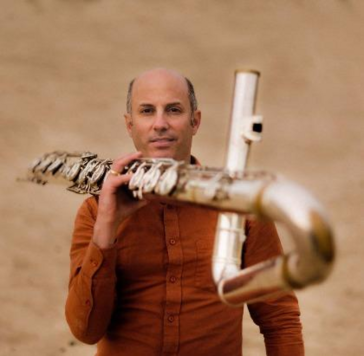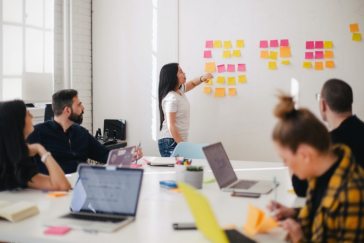In the European policies to increase the quality of teachers, much attention is given to the upgrading of qualifications. However, in European debates on teacher education, e.g. within the context of the Education & Training 2020 program, discussions about the qualification level are mostly restricted to initial teacher education. This raises the question what possibilities there are to raise the qualification level of teachers already working in schools. From this perspective, there is a need to take a closer look at in-service Master’s qualification programs, at existing arrangements and programs, at their focus and their impact on the professionalism of teachers. The paper addresses issues with respect to the conditions for successful in-service Master’s level qualification programs and reflects on content elements that should be part of the curriculum of these programs. In answering the question what content elements should be part of inservice Master’s programs that extend the minimum standards for teachers, the paper focuses on the ‘secondary role’ of teachers that extends beyond the primary process of teaching and learning and connects this to the concept of extended professionalism (Hoyle 1975, Stenhouse 1975). The paper concludes with a frame of reference that can be used to analyse the contribution of in-service Master’s level qualification programs to the professionalism of teachers.
MULTIFILE

Publicatie naar aanleiding van de internationale Master Class van Stadslab European Urban Design Laboratory. Onderwerp was het ontwikkelen van een regionale ruimtelijke strategie voor deze Poolse universiteitsstad. In de publicatie, naast de resultaten van de Master Class, ook essays van Ruud Vreeman, Ewa Kipta en Didier Rebois.
DOCUMENT

Publicatie naar aanleiding van de door Stadslab European Urban Design Laboratory georganiseerde Master Class met als thematiek het ontwerpen van een Innovative District voor de Poolse stad Lublin. De Master Class werd gevolgd door 8 internationale deelnemers en stond onder supervisie van Didier Rebois (Europan, Parijs), Marc Glaudemans (Fontys) en Juliette van der Meijden (Fontys)
DOCUMENT

Students in Higher Music Education (HME) are not facilitated to develop both their artistic and academic musical competences. Conservatoires (professional education, or ‘HBO’) traditionally foster the development of musical craftsmanship, while university musicology departments (academic education, or ‘WO’) promote broader perspectives on music’s place in society. All the while, music professionals are increasingly required to combine musical and scholarly knowledge. Indeed, musicianship is more than performance, and musicology more than reflection—a robust musical practice requires people who are versed in both domains. It’s time our education mirrors this blended profession. This proposal entails collaborative projects between a conservatory and a university in two cities where musical performance and musicology equally thrive: Amsterdam (Conservatory and University of Amsterdam) and Utrecht (HKU Utrechts Conservatorium and Utrecht University). Each project will pilot a joint program of study, combining existing modules with newly developed ones. The feasibility of joint degrees will be explored: a combined bachelor’s degree in Amsterdam; and a combined master’s degree in Utrecht. The full innovation process will be translated to a transferable infrastructural model. For 125 students it will fuse praxis-based musical knowledge and skills, practice-led research and academic training. Beyond this, the partners will also use the Comenius funds as a springboard for collaboration between the two cities to enrich their respective BA and MA programs. In the end, the programme will diversify the educational possibilities for students of music in the Netherlands, and thereby increase their professional opportunities in today’s job market.

Within the framework of the “Greening Games” project, we will develop, test and distribute flagship didactic materials addressing the interdisciplinary nature of green digital gaming. These will be tested in selected higher education programs and finally shared as open access content for the broader academic and teaching community. It is our core strategic responsibility to educate students about the relations between digital games and environment. We believe that the more aware students of today will become greener game designers, programmers, and academic leaders of tomorrow. At the centre of our partnership’s didactic philosophy are human responsibility, ethical game design and sustainable gaming culture. Societal IssueVideo games serve as technological marvels and cultural reflections. McKenzie Wark suggests they are integral to a shared culture, fostering critical thinking. Games act as arenas for cultural values and environmental awareness. Climate-aware video games, often referred to as 'green games' or 'eco-games,' raise ecological consciousness and reconnect players with nature. For example, Riders Republic, which replicates real-world terrain using satellite imagery, inspires eco-awareness. However, the environmental footprint of video games, reliant on digital electronics and resource-intensive consoles, poses challenges. Developers, manufacturers, and gaming giants must address these impacts. Benjamin Abraham emphasizes sustainable game development as a holistic solution beyond incorporating green content.Benefit to societyBy developing teaching materials on green gaming for higher education, we create the following impact. We will…- increase the awareness of this subject among Bachelor’s and Master’s students.- enhance students’ knowledge of green gaming and their ability to integrate existing solutions into their game projects.- stimulate more research interest among research staff as well as students.- facilitate the uptake of pedagogical resources on green gaming by lecturers and professors.- create a European research community around the topic.- raise the visibility of green game studies among the game industry and wider public.
Programmatisch toetsen is een toetsconcept waarbij toetsen worden gezien als informatiebrokjes over de ontwikkeling van de student. Feedback en het leren van de student staan centraal. Beslissingen worden genomen op basis van een veelheid en variatie aan informatie, verzameld over een langere tijdsperiode. In het landelijk leernetwerk werken opleidingen samen die werken volgens de principes van programmatisch toetsen.
